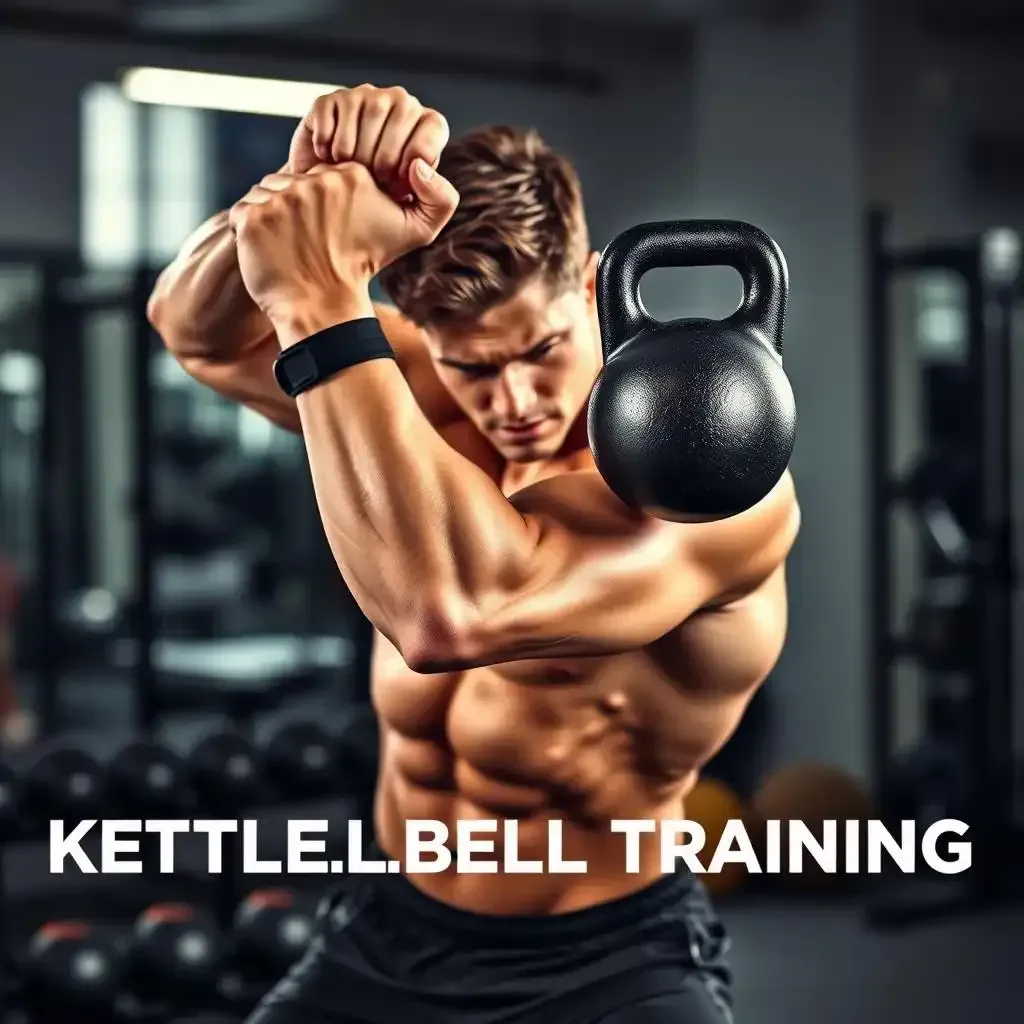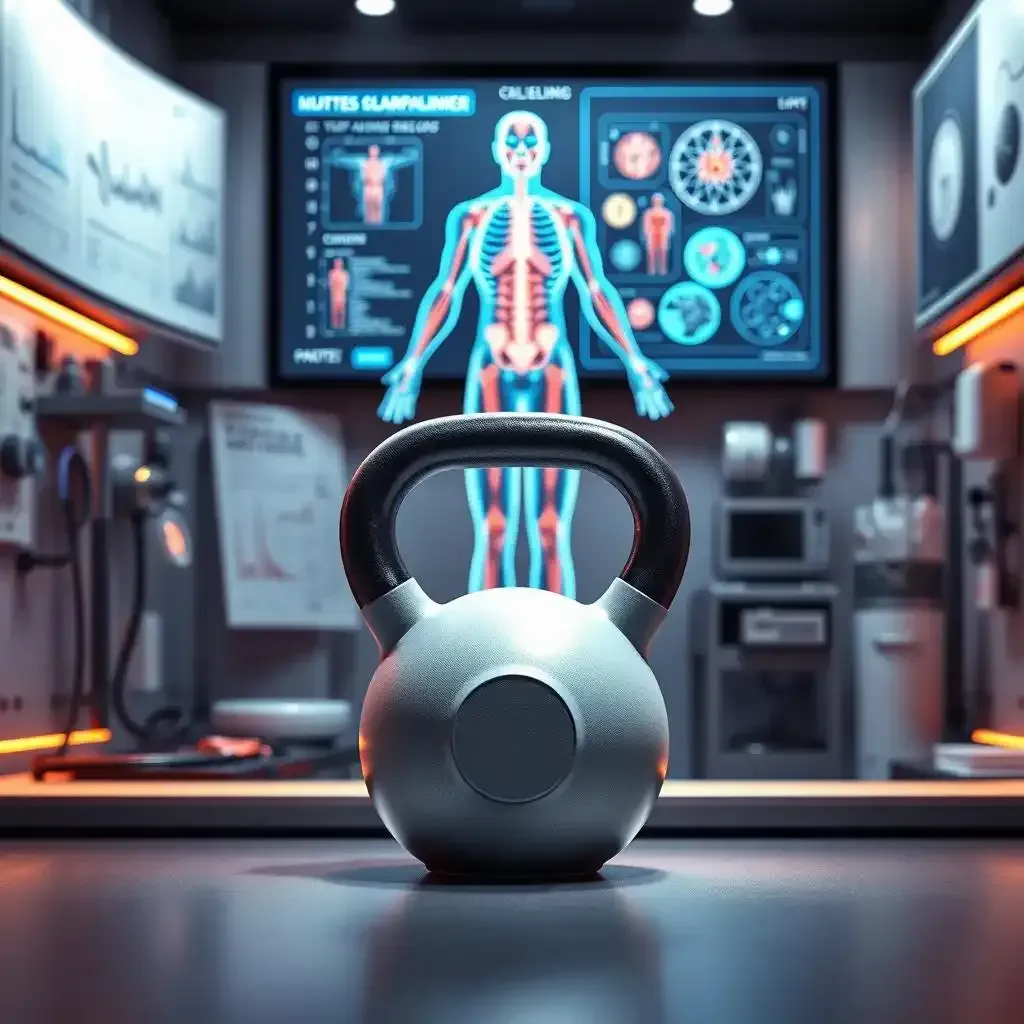Table of Contents
Ever wondered if those swinging kettlebells are really worth the hype? We've all seen the Instagram-worthy photos of ripped fitness gurus, but what does the actual kettlebell workout research say? Is it just a trendy fitness fad, or is there real science backing up the claims? This article dives deep into the latest findings on kettlebell training, exploring its impact on strength, cardiovascular health, athletic performance, and even functional fitness for older adults. We’ll look at studies exploring everything from increased strength and capability to improved aerobic capacity and athletic performance. Get ready to learn how kettlebell training can benefit you, backed by solid research. Ready to find the truth behind the kettlebell craze? Let's explore the world of kettlebell workout research together, right here on kettlebellworkout.homes!
Kettlebell Workout Research: Strength Gains and Beyond

Kettlebell Workout Research Strength Gains And Beyond
Hey there, fellow fitness explorer! Let's talk kettlebells. I've been geeking out on kettlebell workout research lately, and wow, the results are seriously impressive. It's not just about getting stronger; it's a whole-body transformation. Think of it like this: regular weightlifting is like building a really strong house, one brick at a time. Kettlebell training? That's like building a whole city – you're working on strength, endurance, and coordination all at once. It's dynamic, it's challenging, and it's incredibly effective. One study showed significant improvements in strength after just a few weeks of kettlebell training. It's like magic, but it's science!
I mean, seriously, the kettlebell swing alone is a masterpiece of functional movement. It's not just about lifting a weight; it engages your entire body, from your toes to your fingertips. You're working your legs, your core, your back, your shoulders—everything gets a workout. And the best part? You don't need a fancy gym membership. You can do a killer kettlebell workout right in your living room. Need a simple routine? Check out our beginner kettlebell routines!
Kettlebell Exercise | Primary Muscles Worked | Benefits |
|---|---|---|
Kettlebell Swing | Hips, glutes, hamstrings, core | Strength, ability, cardiovascular fitness |
Goblet Squat | Quads, glutes, hamstrings, core | Lower body strength, stability |
Kettlebell Press | Shoulders, triceps | Upper body strength, shoulder stability |
But it's not just about brute strength. Kettlebell training improves your capability, too. That means you'll be able to move faster and with more force. Imagine yourself effortlessly carrying groceries, or easily lifting that heavy box. Kettlebell training isn't just about lifting weights; it’s about building functional strength that translates to real life. Plus, it's a fantastic way to improve your posture and core stability. A strong core is like the foundation of a building – it keeps everything balanced and prevents injuries. For more tips on proper form, check out our kettlebell form guide!
What's really cool is how versatile kettlebells are. You can tailor your workouts to your specific goals, whether it's building muscle, losing weight, or just improving your overall fitness. It’s like having a personal trainer in a compact, cast-iron package. And don't worry if you're a beginner. There are tons of resources available to help you get started safely and effectively. We've got plenty of beginner-friendly workouts on our site, like our kettlebell exercises for starters.
- Start slow and focus on proper form.
- Listen to your body and take rest days when needed.
- Gradually increase the weight and intensity of your workouts.
Remember, consistency is key. Just like learning to ride a bike, it takes time and practice to master kettlebell techniques. Don't get discouraged if you don't see results overnight. Keep at it, and you'll be amazed at what you can achieve. And hey, if you ever have any questions, don't hesitate to reach out to our community! We're all in this together.
One thing that often surprises people is how much kettlebell training improves your cardiovascular fitness. It's not just a strength-training tool; it's a fantastic way to get your heart pumping. The dynamic movements involved in kettlebell exercises enhance your heart rate, improving your overall cardiovascular health. Want to know more about building your cardio with kettlebells? Check out our kettlebell cardio routines for some killer workouts.
Kettlebell Workout Research: Cardiovascular Benefits and Metabolic Effects

Kettlebell Workout Research Cardiovascular Benefits And Metabolic Effects
Kettlebell Training: More Than Just Muscles
Okay, so you've probably heard that kettlebell workouts build serious strength. That's true, but they're also amazing for your heart and lungs! Think of it like this: a regular run is great cardio, but it mainly works your legs. Kettlebell exercises? They're a full-body cardio blast. You're constantly moving, swinging, pressing – your heart races, you breathe heavily, and your whole body gets a workout. It's like a cardio party your entire body is invited to. I've noticed a big difference in my own stamina since I started using kettlebells regularly. I can run longer, climb stairs easier, and even handle stressful situations with more energy. It's not just about looking good; it's about feeling great too. For more info on building your stamina, check out our kettlebell endurance routines.
- Increased heart rate
- Improved oxygen uptake
- Enhanced cardiovascular endurance
Metabolic Boost: Kettlebells Fire Up Your Metabolism
Another awesome thing about kettlebells? They seriously boost your metabolism. Your metabolism is basically your body's furnace – it burns calories even when you're resting. Kettlebell training fires up that furnace, helping you burn more calories throughout the day, even after your workout is done. It's like having a built-in calorie-burning machine! This means you can potentially lose weight and keep it off more effectively. I found that combining kettlebell workouts with a healthy diet helped me lose weight and build muscle simultaneously. It’s not just about the workout; it's about the long-term metabolic effects. Want to learn more about using kettlebells for weight loss? Check out our kettlebell weight loss guide!
Metabolic Factor | Effect of Kettlebell Training |
|---|---|
Resting Metabolic Rate (RMR) | Increased |
Post-exercise Oxygen Consumption (EPOC) | Elevated |
Fat Oxidation | Improved |
Kettlebell Workout Research: Athletic Performance Enhancement and Functional Fitness

Kettlebell Workout Research Athletic Performance Enhancement And Functional Fitness
So, I've been digging into the research on how kettlebells affect athletic performance and, let me tell you, it's pretty mind-blowing. It's not just about looking good in a gym selfie; it's about *actually* improving your game. Think of it like this: a race car needs a powerful engine, sure, but it also needs amazing handling and responsiveness, right? Kettlebell training isn't just about building that engine (strength); it's about fine-tuning all the other components of athleticism – agility, balance, capability – so you can perform at your peak. For more kettlebell workout plans, check out our workout plans!
I read a study that showed kettlebell training improved athletes' performance in various sports, like weightlifting and even basketball. It's all about functional strength – that's strength that translates into real-world actions, like jumping higher, running faster, or throwing further. The dynamic movements involved in kettlebell exercises force your body to work as a unit, improving coordination and balance. That’s essential in any sport, whether you're a sprinter, a swimmer, or a tennis player. Looking for kettlebell exercises specifically for athletes? Check out our kettlebell workouts for athletes.
- Improved strength and explosiveness
- Enhanced agility and coordination
- Increased strength and endurance
But it’s not just for athletes. Kettlebell training is also seriously beneficial for functional fitness, which means it helps you with everyday tasks. Think about it: carrying groceries, lifting heavy boxes, playing with your kids – these all require strength, balance, and coordination. Kettlebell training helps you build the strength and stability you need to steer daily life with ease and grace, reducing your risk of injury along the way. Want to see how kettlebells can improve your balance? Our balance exercises page has got you covered!
One of the coolest things about kettlebell training for functional fitness is that it's adaptable to different fitness levels and ages. Whether you're a young athlete or a seasoned senior, you can modify kettlebell exercises to suit your abilities. This makes it an incredibly inclusive form of exercise, suitable for nearly everyone. For seniors, we have kettlebell exercises for seniors specially designed for you.
Age Group | Benefits of Kettlebell Training | Important Considerations |
|---|---|---|
Young Adults | Increased athletic performance, muscle growth | Focus on proper form and progressive overload |
Older Adults | Improved balance, strength, functional fitness | Start slowly, focus on low-impact movements |
Kettlebell Workout Research: Future Directions and Unanswered Questions

Kettlebell Workout Research Future Directions And Unanswered Questions
Okay, so we've learned tons about kettlebells – they're awesome for strength, cardio, and even help with everyday stuff. But, like, there's still so much we don't know! That's what makes it exciting, right? It's like being on a treasure hunt, and the treasure is better fitness. For example, we need more research on how kettlebell training affects different groups of people – like older folks or people with injuries. What's the best way to use kettlebells for them? What are the safest ways to make sure they don't get hurt? It's super important to figure that out so everyone can benefit.
I'm also curious about long-term effects. We know kettlebells are great for short-term gains, but what about years down the line? Does it keep helping your body stay strong and healthy? And what about different training plans? Some people love short, intense workouts; others prefer longer, slower ones. Which is better? Does it even matter? We need to explore all these different things to really understand how to use kettlebells most effectively.
- Long-term effects of kettlebell training
- Optimal training plans for different populations
- The role of kettlebells in injury prevention and rehabilitation
Another thing that's really interesting is how kettlebells affect your body on a deeper level. What's going on inside your muscles and cells when you swing that kettlebell? What are the hormonal changes? Understanding this could lead to even better training methods, and help us figure out who benefits most from kettlebell training. Think of it like this: we know kettlebells work, but we don't fully understand *why* they work so well. That's a big puzzle we need to solve!
Finally, we need more studies that look at how kettlebell training combines with other types of exercise. Could it help someone who's also doing yoga or running? What's the best way to combine different workouts for maximum results? This is where things get really interesting, because it's not just about kettlebells; it's about creating a holistic fitness plan that really works for individuals. For more beginner kettlebell exercises, check out our .
Research Question | Potential Benefits |
|---|---|
Long-term effects on bone density | Improved bone health, reduced risk of osteoporosis |
Impact on metabolic rate and body composition | Effective weight management, improved body composition |
Effects on functional fitness in older adults | Improved quality of life, increased independence |
So yeah, there's a lot more to learn in the world of kettlebell training. This isn't just about getting stronger or looking better; it's about understanding how to use this tool to optimize your physical well-being in a really deep and meaningful way. The more we learn, the better we can use kettlebells to improve people's lives. It's like we've just scratched the surface of what's possible. To learn more about kettlebell safety, check out our safety guide!
Final Thought
Kettlebell workout research continues to evolve, revealing the diverse benefits of this versatile training method. While more research is needed to fully understand the long-term effects and optimal training protocols, the current evidence strongly suggests that incorporating kettlebell exercises into your fitness routine can lead to significant improvements in strength, cardiovascular health, athletic performance, and functional fitness. So, grab those kettlebells, and start your fitness trip today!